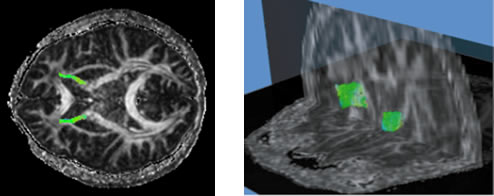- Non-invasive neuroimaging of higher brain functions
- Empirical research on brain mechanisms of visual perception and consciousness
- Development of an Ultra-Highly Sensitive Optically Pumped Atomic Magnetometer toward Non-invasive Brain Imaging
- Development of Integrative Multimodal Functional Neuroimaging Techniques
- Numerical methods for analyzing electric, magnetic, and electromagnetic fields in biological objects and their application to biological function engineering
Development of Integrative Multimodal Functional Neuroimaging Techniques
Functional MRI (fMRI) using blood oxygenation level dependent (BOLD) contrast is a well established technique for imaging of human higher cognitive functions. fMRI is characterized by its high spatial resolution but limited in its temporal resolution. On the other hand, the benefits of techniques measuring electromagnetic features of neurons, such as MEG and EEG, are almost precisely the obverse of those of fMRI, in that they provide millisecond order temporal resolution but with limited spatial resolution. However, at present, there is no single available neuroimaging modality, which can provide both high spatial and temporal resolutions. The availability of neuroimaging techniques with such high spatio-temporal resolution would provide an important advancement in cognitive brain research, and improve clinical diagnosis and management of neurological and psychiatric disorders. We have been developing new neuroimaging techniques by integrating several modalities, such as MEG, fMRI and MR-DTI (diffusion tensor image), for analyzing complex cognitive functions. Furthermore, we have been examining the availability of a new fMRI based on diffusion contrast.










